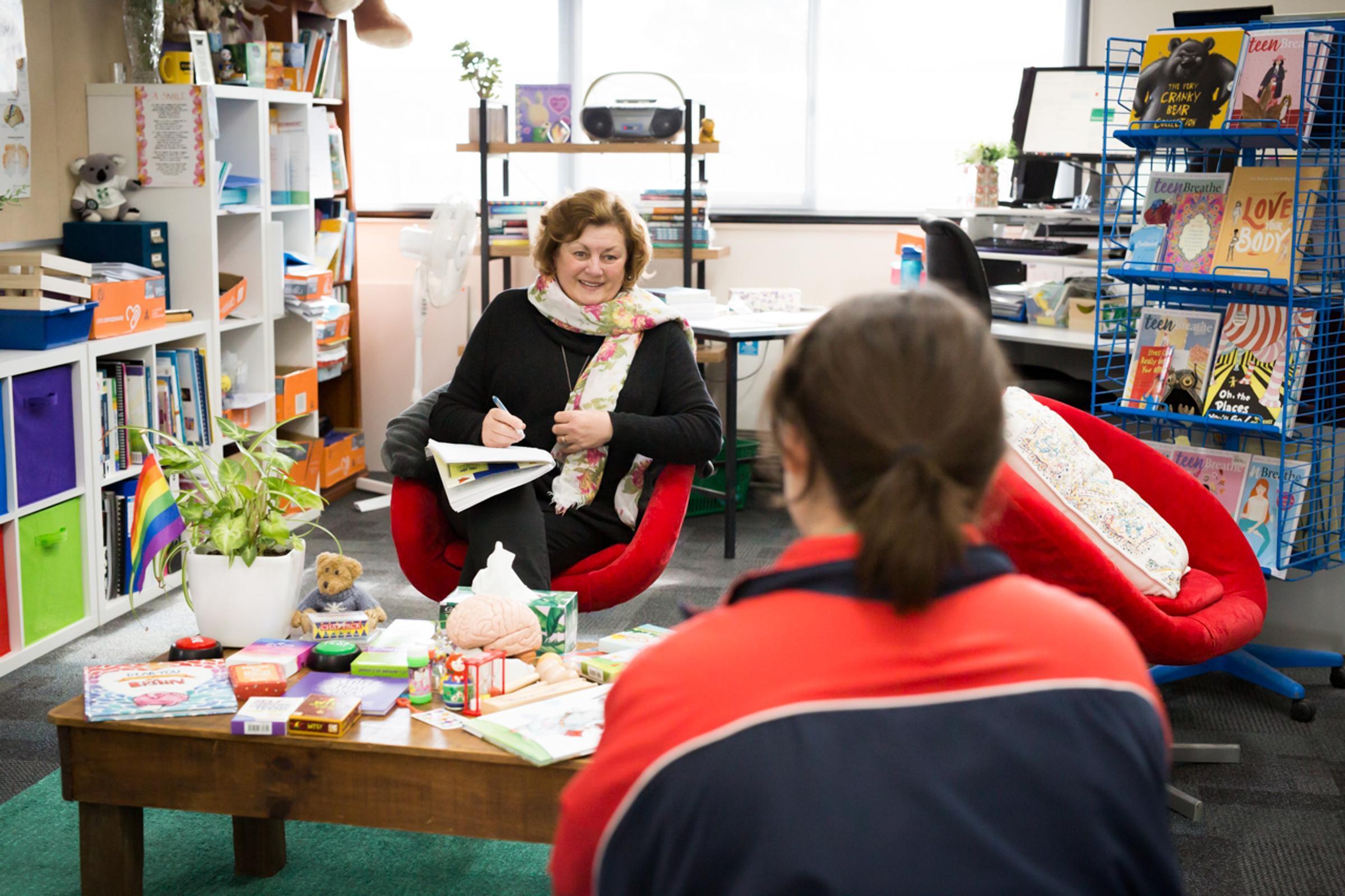From the Counsellor

An Apt Metaphor for Boundary Setting with Young People
Following on from the reference to Linda Stade’s column in Mrs Turnor’s article last week, I wish to share a really memorable metaphor from the same article. In the context of attachment and developmental needs, as children become adolescents, it’s perfectly normal for them to seek connections and attachment figures beyond the family. Parents who understand the individuation process of their child will need to become savvy managers and creative curators of family time; you might need to stage-manage some memorable and/or ritualised occasions, as your teen branches out beyond their family of origin ties across the bridge of adolescence towards their future family of creation.
Strong healthy attachment bonds will ensure that your children will have the capacity to establish sound relationships outside the home. The metaphor included in Stade’s article which really struck me as perfect in this adolescent growth space, is illustrated in Like the Lap Bar on a Roller Coaster, Teens Will Test You to See if You Will Hold - YouTube. This clip encapsulates how as parents you will be tested, prodded, challenged, pushed, defied … but your adolescent wants you to hold your ground, to be strong, to be safe, to be certain, to be stable, especially during times of teenage trial and pushback.
Leavers/Schoolies Celebrations
As many of our young people are actually enjoying schoolies this week, it’s right to remind ourselves of the advice offered by groups such as Red Frogs Schoolies Advice For Parents - Red Frogs and Alcohol and Drug Foundation Schoolies – some advice for parents - Alcohol and Drug Foundation (adf.org.au). Some tips for safety and staying connected with our leavers as they enjoy this “rite of passage”, regardless of how we might frame or perceive this time/privilege include:
- clear planning and boundaries around responsibilities for cost (travel, accommodation etc);
- encouragement of healthy choices starting with physical health considerations (food, hydration, sleep);
- sexual health concerns;
- designating one person in the group to be alcohol/substance free each day for safety reasons;
- no vehicles if possible;
- lists of important contacts on phones (yours and theirs) including ICE (in case of emergency); and
- for you to be available 24/7 for them in cases of urgency, danger and emergency.
You can still offer “your safety rail” of those necessary caring/strong/loving boundaries from a distance.
Friendship Lab
This is a prosocial idea which has been formulating in my mind during this year – a safe place where friendship repair, maintenance and tweaking can occur between peers. Happenstance is a marvellous phenomenon and, catalysed by the intent and courage of some of our Year Eights, it has been my distinct honour to have assisted in the resetting of a few friendships this year. Taking responsibility for our actions, being mindful of our influence, noticing how our thoughts and feelings might or not translate into automatic behaviours, asking for forgiveness, and being able to forgive, assertive communication style, boundary setting, problem-solving, perspective taking … are all grist for this social mill. While we are biologically wired to connect with others, to find our group, to bond, we are not born with the perfect guidebook or a rule sheet about how to be a good friend. So, in the service of being our best selves, opportunities for friendship maintenance will feature in the Wellness Centre next year.
Next week’s Anchor will offer some creative ideas and support agencies and contact details for mental health over the summer.
Ms Sheryl Moncur | Teacher and Counsellor
